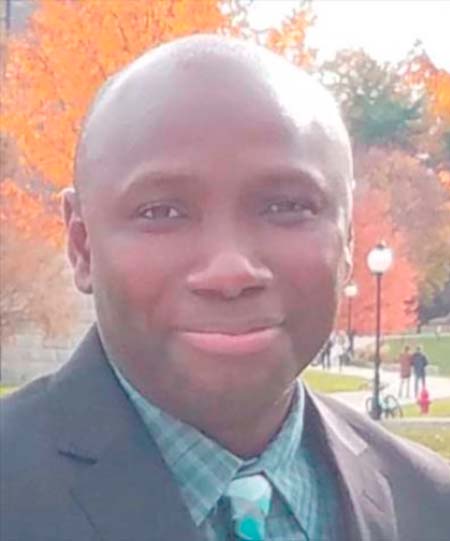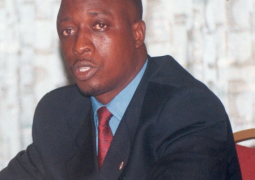
There is a proverbial saying that when a person is given fish, he or she is fed for one day. However, when one is taught how to fish, one becomes fed for life. The above proverb is my view on education. I believe in the use of education to create a community of lifelong learners who think together and apart while sharing knowledge that is capable of transforming social and cultural institutions for the purpose of enhancing the human experience. Education has to be purposeful, free from coercion, and used as a remedy for marginalization.
There
is broad consensus within the social sciences that successful democracies
witness sustained transformations through empowerment programs such as an
education that is meaningful to participants. In order words, what students
learn in the classroom must have real-world applications in order to create and
maintain motivation among learners. Purposeful education is particularly
important to adult learners and adolescents from low-income backgrounds who
rely on their education to gain employment. As one of the countries with the
highest rate of unemployment among its youth, the education system in “The New
Gambia” must create opportunities for skill development while looking to the
future for scholarship.
Presently,
the primary function of the new administration should be job creation. Citizens
must feel adequate and capable of providing for their families and loved ones
in order to become focused on other areas of development that are important to
the future prosperity of the nation. Alongside that effort should be the
education of children, youth, and adult learners. An educated nation is far
more competitive in a global economy. With globalization, there is a need for
rigorous standards and attainable benchmarks that are essential in guiding the
delivery of instruction and management of schools. Standards are helpful to
guiding curricular implementation while ensuring accountability. Benchmarks are
crucial to measurements and future decision-making based on assessment
outcomes. Together, standards and benchmarks in education can help a nation to
overcome structural barriers while reducing bias.
Presently,
The Gambia is facing an educational crisis that must be reversed in order for
the country to sustain itself. An educated society transforms itself using
rigor to challenge students to become creative learners and sophisticated
problem-solvers. Learning activities can include projects and higher order
thinking skills, with built-in assessment protocols to support growth while
revealing areas in need of improvement. Project-based learning empowers
students by offering concrete examples while higher order thinking skills
elevate learners to enhance their dispositions by thinking critically and
applying their talents logically. Unfortunately, the current educational
approach in The Gambia has not been successful at reaching a majority of
students.
Instead,
results from previous national and regional examinations suggested that the
country continues to see a decline in student performance in English,
mathematics, the sciences, and technology over a span of three years or more.
Factors responsible for such declines included lack of appropriate tools in
science laboratories in schools, inability of students to purchase required
textbooks, fewer competent teachers in the various disciplines, and an over
ambitious curriculum.
While
the country suffered from major failures in providing children with adequate
schooling, the previous government also decreased education spending which
exacerbated the low performance outcomes experienced by schoolchildren. The new
leadership can reverse the nation’s educational misfortune by employing
multiple methods in order to change The Gambian society.
IMMEDIATE
STEPS:
• Minimize
financial barriers:
Textbooks
are a major part of learning. With books, students will have access to content
materials with multiple examples, quizzes, exercises, and activities. Children
who have access to textbooks generally perform better in school because of
their access to information beyond that which is presented during classroom
instruction. Having textbooks available in every school will provide every
child in The Gambia with an equitable educational experience that will pay
substantial dividends.
• Adequacy:
There
is a proverbial saying that a soldier cannot go to war without his weapon.
Similarly, children cannot succeed in school without adequate resources.
Without lab equipment, students cannot take part in meaningful scientific
research. Each student has to learn through explicit instruction how to conduct
research. Without the appropriate tools, it will be unfair to expect students
to perform with proficiency. Therefore, every elementary, middle, and high
school must be equipped with a science lab in order to engage students.
• Curricular reform:
The
curriculum tells educators what students will be able to do at the end of a
unit. While it is important to implement standards at a higher level, several
bodies of research also support the implementation of curricular materials at a
lower level to meet students where they are, and then provide scaffolds to the
point at which students can reach higher. If children are not able to read,
write, and speak at grade level, alternative approaches must be employed until
they become fluent. Then, they can be promoted to the next level.
FUTURE
STEPS:
• Early
childhood education:
When
children have more time to practice, they become fluent learners early.
Research has revealed that children who start school early become more
successful in their educational outcomes than those who start later in life.
Therefore, early childhood education should be introduced in The Gambia so as
to get children in educational settings as early as three years of age. With
early access to education, teachers will be able to identify children who are
developing normally and those who will need intensive instruction and other
therapies for them to become successful’
• Teacher
certification:
The
University of The Gambia should establish a school of education to create a
certified pool of teachers in various disciplines. The capacity of the
university to improve the nation’s education standard is underutilized. Like
physicians and lawyers, teachers must be held to a higher standard in their
profession, using certification criteria that must be met in order to teach.
Certified teachers are better trained and they often have better content
knowledge. Since the goal is to create a dynamic system of education, the
standard for teachers must be equally high so as to reduce the number of
unqualified teachers while increasing the number of qualified candidates to
fill appropriate positions.
• Capacity
building:
Create
pathways for exceptional teachers to become school leaders. Alongside teacher
leadership, establish a research entity through the university in collaboration
with the Ministry of Education to conduct joint research activities through
which issues of educational and social importance can be studied and analyzed.
When education scholars work alongside policy-makers, research data will be
streamlined, redundancy will be minimized, and waste management will improve.
Consequently,
while I believe that education can change society, I am also of the view that
meaningful steps must be taken in order for such society to witness the change
that it seeks from educating its citizens.
REFERENCES:
The
West African Examination Council (2013). Registrar’s annual report to council
for the period April 1, 2012 to March 31, 2013. Retrieved on February 11, 2017
from file:///C:/Users/Sankung78/AppData/Local/Temp/Temp1_Attachments_2017211%20(1).zip/Registrars_Annual_Report_2013.pdf
The
West African Examination Council (2004). Perceptions of the causes of low
entries and poor performance in science subjects at the West African Senior
School Certificate Exam (WASSCE) in The Gambia (1998 – 2001). Retrieved on
February 11, 2017 from
file:///C:/Users/Sankung78/AppData/Local/Temp/Temp1_Attachments_2017211%20(1).zip/perceptions_of_causes_of_low_entries.pdf
The
West African Examination Council (2006). Executive summary of entries, results
and examiners’ reports on the 2006 West African Senior School Certificate
Examination (WASSCE) conducted in The Gambia. Retrieved on February 11, 2017
from
file:///C:/Users/Sankung78/AppData/Local/Temp/Temp1_Attachments_2017211%20(1).zip/examiners_report_2006_gm.pdf
Sankung
Papa Susso, EdD is a Professor of Education at Touro College and University
Systems



